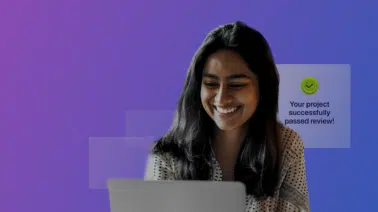
The work of being a professional creative artist has changed dramatically in the last two decades. For better or worse, the onus has gone squarely and entirely onto the shoulders of artists when it comes to advancing careers. For those unprepared or unwilling to master the new suite of skills required to succeed in the digital age, the changes have been daunting at best, and career-ending at worst.
Self-promotion has always been part of the process of being a professional working artist, but the requirements run both broader and deeper today. To succeed, you must not only produce the creative work, you must also be an accountant, a promoter, a manager, a PR agent, a marketer, a designer, a developer, and more.
Does this seem overwhelming, even impossible? Rest assured, it’s not. But adapting, if you haven’t already, will take some work. Fortunately, the solutions exist. Wrap your head around the 3 Ds, and you’ll be in a great place to own and advance your career. Let’s investigate further!
Data
The most likely shift in any professional artist’s career today will be the shift to total ownership. Unless you’re affiliated/signed with a major studio, publishing house, gallery, record label, etc., you’re essentially all the above, on your own. You ARE your own company. And that means you need to know how to do the numbers. From simple things like budgets, to complicated analyses of everything from site traffic to regional sales variations to audience persona behavior, your ability to collect, analyze, and produce actionable insights from data is what will ultimately set you apart from your competitors in your field.
Doesn’t sound very “artistic,” does it? It’s not. But remember, you’re wearing many different hats now. When you’re in your studio, or at your writing desk, you’re the artist. But when it’s time to decide whether you should press another run of CDs, or whether you can afford a second campaign for a video single, you’re not the artist anymore. You’re the accounting office and the marketing team.
Your life and career will change measurably by mastering even the most foundational skills. If you have no experience with data, consider enrolling in our Data Foundations Nanodegree program. You’ll be amazed by what you can do and learn, and by the rapidity with which you’ll be able to almost instantaneously apply what you’ve learned. One of the advantages of self-ownership is you see results almost in real-time.
The thrill of making your first genuinely data-driven decision will blow your mind.
Development
Ask yourself, how many successful businesses out there do NOT have a website? How many successful businesses out there do NOT have an app? None-ish, right? So having a website and an app isn’t really going to be a competitive differentiator. Thus, on to the next questions: How many independent artists/musicians/writers out there have a generic, plug-n-play, WYSIWYG Web Builder website? About a billion, right? On the other hand, how many authors out there have a unique, well-built, effective, and totally engaging website that not only offers a wealth of rewards for visitors, but also features a fantastic user experience for the consumer, and delivers a wealth of actionable data for the host? Somewhat less than a billion, right? So this is where you have the opportunity to differentiate.
There are two ways to think about web and mobile development as it applies to your career: you can learn the basics, making it immeasurably easier to a) work with outside developers to get the results you want, and b) make updates and improvements yourself as you go. Udacity’s Intro to Programming Nanodegree program is a great way to get started. Your second option is to do everything yourself. That can be a steeper climb to begin with, but total ownership ultimately gives you more control, as well as saves you money. Udacity gives you a full range of options that enable you to chart your course—how you proceed will depend on your existing skills and experience, what your end goals are, and whether you want to focus on mobile, web, or both.
- Intro to Programming
- Front-End Web Developer
- Full Stack Web Developer
- Android Basics
- Android Developer
- iOS Developer
- Mobile Web Specialist
Digital Marketing
For the independent professional artist, this is the big one. Once your product is out there in the world, this is where you’re going to be spending most of your time. And this is the arena where competitive differentiation is both the hardest thing to achieve, and the most impactful when you do achieve it.
Why?
Because the tools are readily available, and no matter how big or small the brand, everybody pretty much uses the same ones. For example, in 2016, to support the release of Deadpool, 20th Century Fox ran an integrated social media campaign that included:
- Original Videos (i.e. an “Honest” trailer that generated over 13.5 million views on Screen Junkies, and a fake commercial that received 8 million online views and 28.3 million unique impressions later, becoming the second most viewed video on Facebook ever.)
- An AMA on Facebook Live
- Snapchat Stories highlighting “A Day in the Life” of the popular character
- An iTunes Takeover of other superhero film pages
- A parody VHS and laser disk release on Amazon
- Trending hashtag takeovers
(summary courtesy of Impact)
You can read a detailed summary of this groundbreaking campaign here. The results close with the following stat: 200MM EARNED IMPRESSIONS!
What did they use to achieve these numbers? The same tools you’re using: Facebook, Snapchat, iTunes, YouTube, etc. Now, you probably don’t have the budget that 20th Century Fox has, but you can learn the skills, tools, methods, and strategies they use, and apply it to your own career.
At Udacity, you can learn those skills from the very some experts who are developing and pioneering these strategies. For our Digital Marketing Nanodegree program, we work with experts from Facebook, Google, Hootsuite, Hubspot, Mailchimp, and Moz to build our curriculum, and these are the most innovative minds operating in this space today.
Success
Success as a professional working artist is all about scale.
You may not be as big as the big brands, but you can use all the same tools, strategies, and skills, and if Deadpool turned a $58 million investment into a $780 million global return, there’s no reason you can’t turn a $580 investment into a $7800 return. And believe me, if you’re an independent artist, and you come out ahead by over $7000 on a project? You’re doing very, very well!



